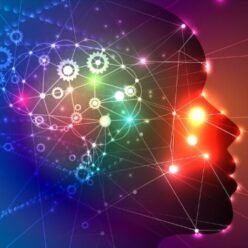It may not be surprising to hear that good nutrition and proper hydration are vital to recovery for brain injury survivors. Nutrition is an important part of brain injury recovery because both the brain and body need proper nutrients in order to heal. The food we eat supplies us with energy and nutrients that our brain and body use to complete physical, cognitive, and mental recovery. Undernutrition is associated with an increased mortality rate, more infectious complications, and worse neurologic outcomes. Deficiencies in certain nutrients can also increase brain function disruption and impact a patient’s ability to heal and recover.
Good hydration provides the brain with energy to help improve thought and memory processes. Hydration also boost neuro-plasticity, which helps the brain heals itself by creating new pathways and strengthen existing ones. So, it is important for brain injury patients to stay well hydrated, get enough nutrients and calories, and include essential vitamins and minerals, in order to fuel their brain’s healing and recovery process.
Diets and vitamins –
Some studies have shown that a Mediterranean diet rich in fruits, vegetables, whole grains, beans, nuts, olive oil and fish may be beneficial after brain injury. Foods containing saturated fats and processed sugar should be avoided, as they can obstruct BDNF and reduce neuroplasticity, which are things you want to encourage during recovery. Zinc and magnesium are two vital nutrients, as they are depleted after a brain injury. Zinc plays a critical role in synaptic transmission, which helps neurons communicate with each other, and magnesium helps transmit signals from the brain to the muscles. B12 helps improve neural function, which is a major plus for brain injury recovery. Vitamin B12 also helps your brain cells produce energy, which is crucial for the healing process. You can get vitamin B12 in your diet by including animal products like meat and dairy. Berries are full of antioxidants, which are very helpful in protecting the brain from damage and reducing inflammation. Studies have also shown certain berries, including strawberries and blueberries, are useful for healing and improving memory, learning, and other cognitive functions.
Tea and coffee –
One of the most popular natural remedies for brain injury is herbal tea. Tea can help relax the nervous system and boost cognition. Most teas, such as green tea, contain caffeine, but there are many caffeine-free herbal teas including chamomile, ginger, and peppermint varieties. Many people recovering from brain injury will want to use caffeine to eliminate the cognitive fatigue or brain fog that often accompanies brain injury. However, patients should proceed with caution. While caffeine in small to medium amounts is safe and helpful after a brain injury, consuming excessive caffeine can hinder recovery. When it comes to coffee, I will have to confess my bias, not only because of the amazing benefits, but also because I co-founded a coffee shop called Java Central in 2006 that has been iconic, and is thriving to date. The truth is, Sarah and I love coffee and caffeinated beverages, and we believe strongly in the great benefits of reasonable consumption.
Hydration –
Hydration after brain injury is vital, as it will help reduce some of the brain injury symptoms, while dehydration will lead to increased brain injury symptoms or intensify current symptoms. Drinking water can improve one’s brain health by simply increasing blood flow and oxygen to the brain. This will help improve concentration and cognition, supporting memory function, help balance moods and emotions, and reduce stress and headaches. Even mild dehydration is associated with reduced cognitive function characterized by increased fatigue, sleepiness, a worse mood, and inattention. So, stay well hydrated, and make sure your hydration includes enough electrolytes.
Allergy and sensitivity to foods and fluids –
If you have had allergies to foods or fluids prior to brain injury, this problem will be further compounded during healing and recovery. This is not hard to imagine, given the symptoms you are experiencing, and all the added stress, fear, and anxiety that comes with brain injury.
Five years ago, my wife, who was diagnosed with EDS/HSD, started to experience extreme Mal-nutritions and dehydration due to allergy and sensitivity to different foods and fluids, yes fluids, even water. Her condition was so severe, that she was on the verge of organ failure and death. While she visited many specialists and we have done all sorts of testing, no one was able to help her. Meanwhile, the only thing that I could do, was research and scouring the internet. Well, I actually was able to figure it out, and I am happy to report, that while she lost much weight, she is now relatively healthy and doing well. The following white paper, while it was not specifically targeting brain injury survivors, it applies to the general population, and contains most of what you need to know in order to deal with allergy and sensitivity to foods and fluids.
Please use this link to review my white paper “EDS-Digestives” – for experienced-based management of food allergy and sensitivity, as well as hydration, for EDS patients and others with the similar digestive track issues.
